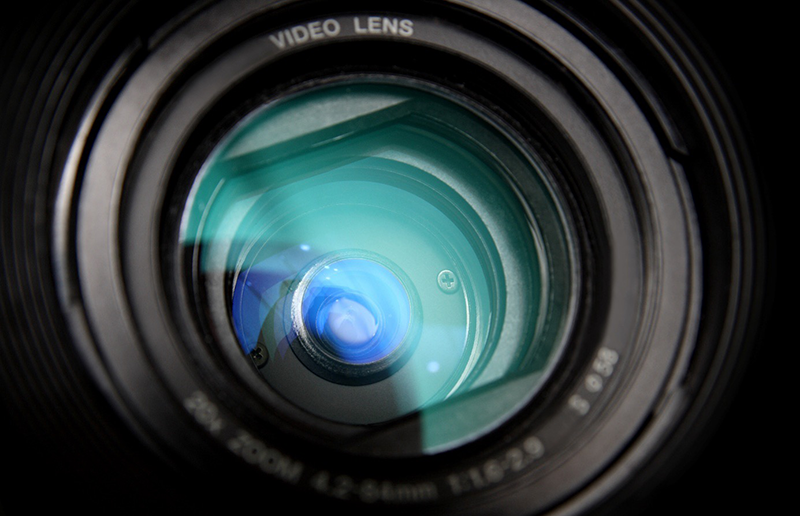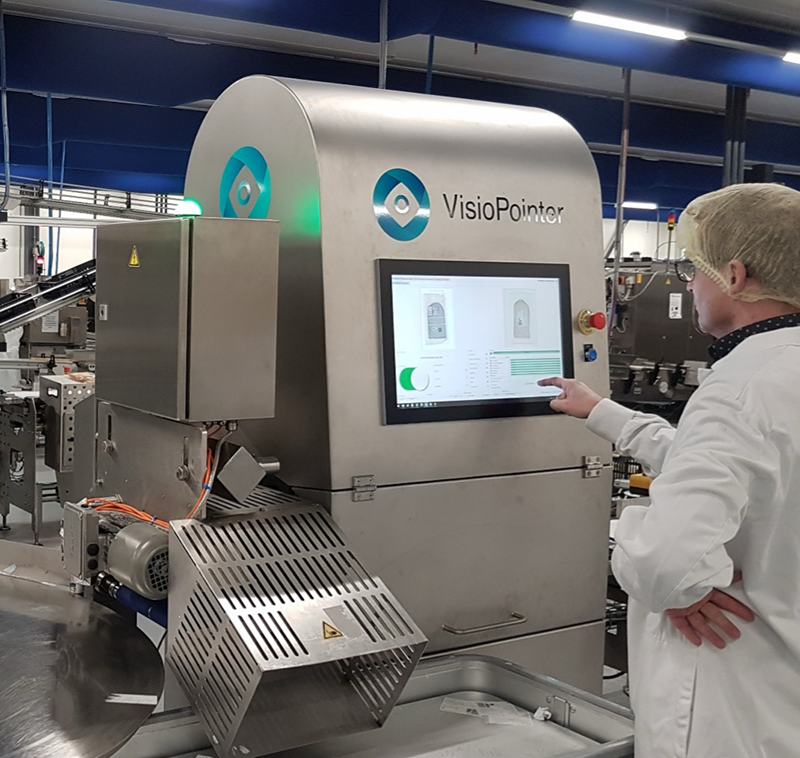
Knowledge Center
How To Get
Efficient Quality Control
Using Vision Inspection

Many of our customers have previously implemented vision systems for quality control of food and packaging without a successful outcome. They experienced that their previous solutions:
- Did not detect and reject all products with errors
- Produced too many false ejections of good products
- Were too difficult and complicated for the operators to use
Fact is – it is hard to master the advanced technology of efficient vision solutions. It takes the right combination of cameras, lights, hardware, software, codes and algorithms as well as a deep understanding of shop floor conditions at various production sites to set up efficient vision-based inspection that works in the food industry.
However – if all these ingredients are used correctly, vision inspection can be the most efficient quality control solution for food manufacturers!
Because fact is also that vision technology is ideal for quality control of both food and food packaging due to its reliable, speedy inspection, and broad application.
But the vision solution must be carried out by vision experts. We know, as we have developed vision solutions for the food and packaging industries for more than 20 years.
Issues emerge when manufacturers implement solutions:
- That do not have sufficient intelligent software ensuring correct failure detection in production environments.
- Where customers are left on their own after implementation, which makes it difficult to maintain correct failure detection
in the long run when changes or incidents occur on the production line. - That are too difficult to operate, e.g. when operators need to update a product label, change production settings, or see
real-time production performance.
“There are different ways to automate your quality control using vision technology. However, if you want it to have a true impact on your business, it is important to think through the consequences of choosing each alternative”, says Ole Neckelmann, Commercial Director at TriVision.
Smart camera solutions
Basically, manufacturers can obtain vision-based quality control by implementing either “Do-It-Yourself” smart camera solutions or complete vision solutions. Smart camera solutions are based on standardized hardware and software, which manufacturers themselves can set up, adjust, and expand.
According to Ole Neckelmann, smart camera solutions can be suitable for very simple quality control – but they often become challenging later if manufacturers are ambitious in automating their quality control:
“If you have the ambitions to continuously improve and expand your vision inspection solution, a smart camera solution will become challenging. Limited software features will make it hard to maintain correct failure detection when the systems must do additional more complex inspections. Moreover, as more systems are expanded and added, the solution will become more unmanageable and require an internal vision expert allocated for maintaining the systems. And even if you manage to acquire such a resource, you will be vulnerable as all quality control systems will rely on one person, who will become more and more occupied by maintaining these systems, as each of them requires many adjustments on a continuous basis.”


...compared to complete vision systems
A complete vision system is on the other hand a complete, finalized system developed for specific production lines, and the suppliers are specialized in vision as they typically develop, install, maintain, and support the systems. When considering multiple options from different suppliers, food manufacturers must ensure that specific key features are present to ensure a true impact on the business performance.
“First, it is of course important that the system actually can detect all the error types that you want to detect – but for the business performance it is just as important that the solution does not cause false rejections and unnecessary costs. Next, it is important to test if the system is easy to use for operators. If production shifts are too time consuming, if operators cannot adjust error tolerances, update product labels or quickly gain an overview of the production performance, then the system will not remain a truly efficient solution in the long run – even though it may, in theory, be able to detect errors correctly”, says Ole Neckelmann.
To fully utilize vision technology to obtain efficient automated quality control, food manufacturers should implement complete systems that are developed, implemented, and maintained by vision experts – vision experts that know the needs of the manufacturers within the food and packaging industry.
The TriVision way
Our complete vision solutions
TriVision’s business is built on that notion: leave vision to vision experts, who know your industry. TriVision develops and provides complete vision solutions specifically for the food industry, and has done it for more than two decades. Our vision competences and industry insights enable us to provide key functionalities to facilitate efficient vision-based quality control solutions for food manufacturers:
Correct failure detection
Our more than 20 years of experience with vision within the food manufacturing industry is fundamental for TriVision’s leading vision technology. The intelligent algorithms of TriVision’s software ensure that our systems work perfectly in food industry’s production environment, ensuring correct failure detection and no false rejections.
User-friendly systems
Having provided quality control solutions for the food industry for decades, we have gained enormous insights about operators’ everyday needs within different food sectors. As a result, we have developed our systems’ interface to meet the needs of the operators, which makes our systems extremely intuitive and efficient – from updating product labels in the system to product shifts and gaining overview of production performance.
Maximum uptime and full benefit with vision experts on the team
With a solution from TriVision, our customers can always rely on vision experts to make sure everything runs smoothly. If inspection requirements change over time, if any adjustments, changes, or incidents take place on the production line, our vision specialists make sure that the systems are adapted and still work perfectly. This is done through remote support by our vision experts, who can access all systems via a secured online connection, and on-site service from our local partners.
Get in touch!
trivision@trivision.dk
Call: +45 6315 4700
